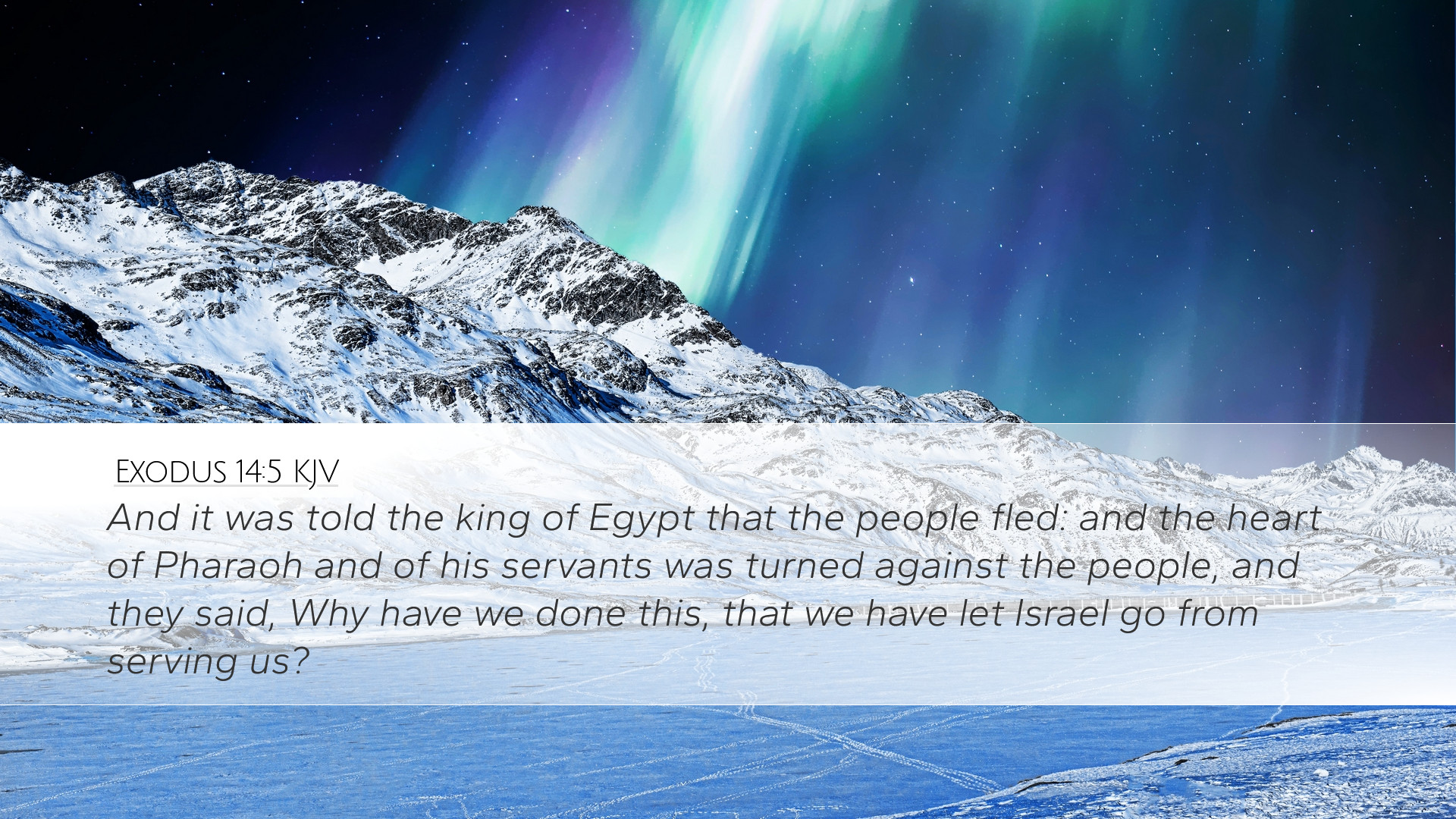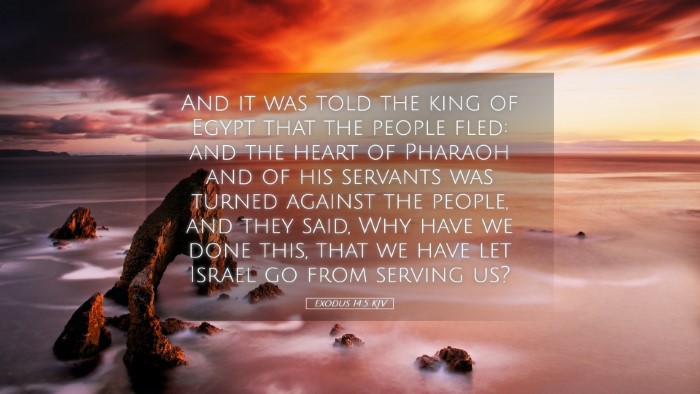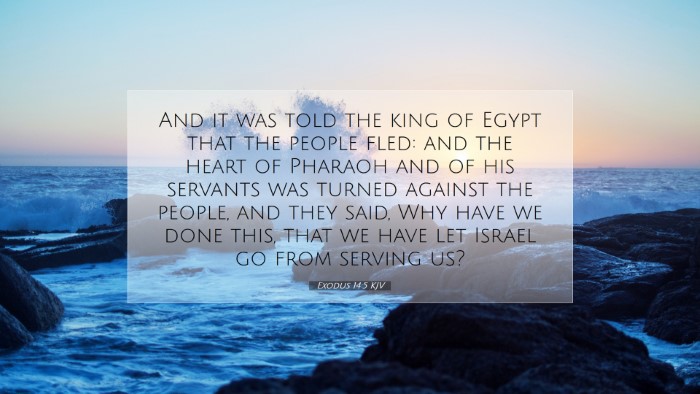Commentary on Exodus 14:5
Exodus 14:5 states: "When it was told the king of Egypt that the people had fled, the heart of Pharaoh and of his servants was turned against the people, and they said, 'What have we done, that we have let Israel go from serving us?'"
Contextual Background
This verse occurs in the critical juncture of the Exodus narrative, wherein the Israelites have just left Egypt after the ten plagues. Pharaoh's change of heart reflects the struggle between divine will and human intention, a theme prevalent throughout the Exodus story.
Pharaoh's Reaction
Pharaoh's decision to pursue the Israelites reveals his unyielding pride and lack of understanding of God's purpose. Matthew Henry notes:
"Pharaoh's heart was hardened, and his servants, filled with despair at their loss, were united in their desire to reclaim the Israelites as slaves."
This reaction is not only an act of political strategy but also displays the spiritual blindness that comes from rejecting God's sovereignty.
Divine Sovereignty Vs. Human Agency
Albert Barnes emphasizes the theological significance of this event:
"This episode exemplifies the interplay between human choices and divine orchestration. Pharaoh and his officials see only the immediate consequences of losing their labor force, unaware that God's plan of redemption is unfolding."
This tension highlights the futility of opposing God’s plans: while Pharaoh might think he is in control, it is God who is steering the events.
Lessons in Leadership and Consequences
Adam Clarke comments on the consequences of leadership decisions:
"The foolishness of Pharaoh illustrates how poor leadership can adversely affect a nation. His desire to retract Israel’s freedom leads directly to chaos and ultimately to his own downfall."
The narrative serves as a cautionary tale for leaders today, warning against decisions driven by pride and hostility.
Theological Implications
At a deeper theological level, this verse invites rigorous examination of sin and rebellion against God. The refusal to acknowledge God’s work can lead to disaster, as highlighted in the commentary:
"Pharaoh’s heart was set against the Israelites. This not only demonstrates human rebellion but also aggressiveness towards God's people, shedding light on the perennial opposition faced by the faithful."
Pharaoh's actions encapsulate the broader human condition of resistance to divine authority.
Encouragement Through Adversity
The flight of the Israelites can also be viewed as a moment of hope amidst adversity. The plight of the Israelites reflects the struggles faced by believers:
"In fleeing Egypt, the Israelites exemplify the journey of faith, showcasing that leaving behind old ways can lead to divine deliverance, even in the face of imminent danger."
As pastors, students, and theologians reflect on this passage, they are reminded that God's hand is guiding even through chaotic and terrifying circumstances.
Conclusion
The events of Exodus 14:5 resonate across millennia, offering profound insights for contemporary readers. The folly of Pharaoh serves as a stark reminder of the dangers of pride and disobedience, while the exodus of the Israelites illustrates the path of faith. As we contemplate this narrative, it becomes clear that trust in God amid turmoil is essential for spiritual success.


